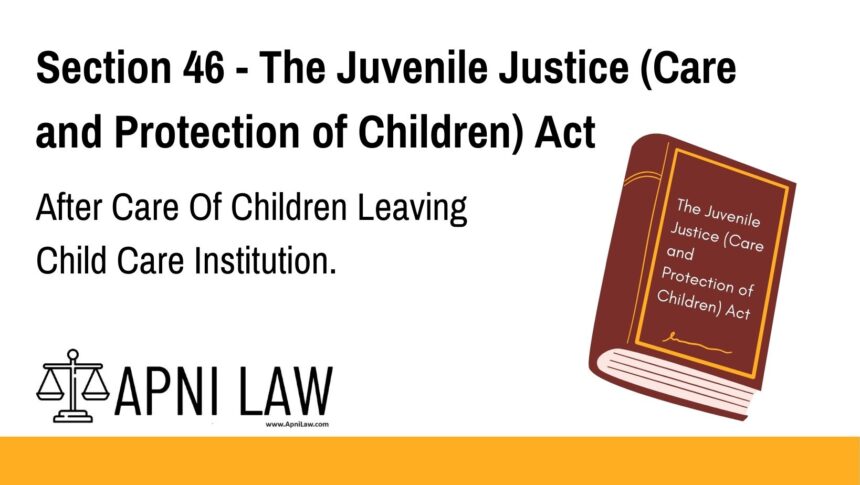Code: Section 46 — After Care of Children Leaving Child Care Institution
Any child leaving a child care institution on completion of eighteen years of age may be provided with financial support in order to facilitate the child’s re-integration into the mainstream of the society in the manner as may be prescribed.
Explanation of Section 46
Section 46 of the Juvenile Justice (Care and Protection of Children) Act focuses on the transition support required for children who exit the child care system upon turning 18. While institutional care provides shelter, education, and support during childhood, reintegrating into society as an adult can be challenging without guidance or resources.
This section empowers the State to provide financial assistance to such children. The aim is to help them adapt to independent life—whether by pursuing higher education, vocational training, employment, or housing.
Key features of this provision include:
- Eligibility: Children who have stayed in a child care institution and have completed 18 years of age.
- Support type: Financial aid to facilitate reintegration into society.
- Regulation: The nature, duration, and amount of assistance are to be outlined by prescribed rules.
Illustration
Example: Transition to Adulthood with Support
Ravi, a 17-year-old living in a Child Care Institution, turns 18 and is no longer eligible to reside there. Under Section 46, he is granted monthly financial support for two years, enabling him to complete a vocational course in automobile repair. The support helps him find a job and integrate into society independently.
Common Questions and Answers on Section 46
1. Who qualifies for after-care support under Section 46?
Any child who has stayed in a child care institution and has completed the age of 18 can be considered for after-care financial support.
2. What is the purpose of this provision?
To ensure that children leaving institutional care are not left vulnerable and are financially equipped to become self-reliant adults.
3. What kind of support is provided?
Financial assistance to help cover education, training, housing, or basic living expenses—depending on the rules framed by the State.
4. How long does this support continue?
The duration is not fixed in the Act but is subject to rules prescribed by the State Government.
5. Is this support mandatory?
The law uses the word “may,” indicating that the support is discretionary and dependent on policy and regulations set by the appropriate authorities.
Conclusion
Section 46 addresses a critical gap in the continuum of care for children in institutional settings. By facilitating financial support for those turning 18, the law ensures they do not fall into homelessness, unemployment, or vulnerability. Instead, it provides them a stepping stone toward building stable, independent lives.
For more detailed insights on juvenile justice laws, visit ApniLaw.








